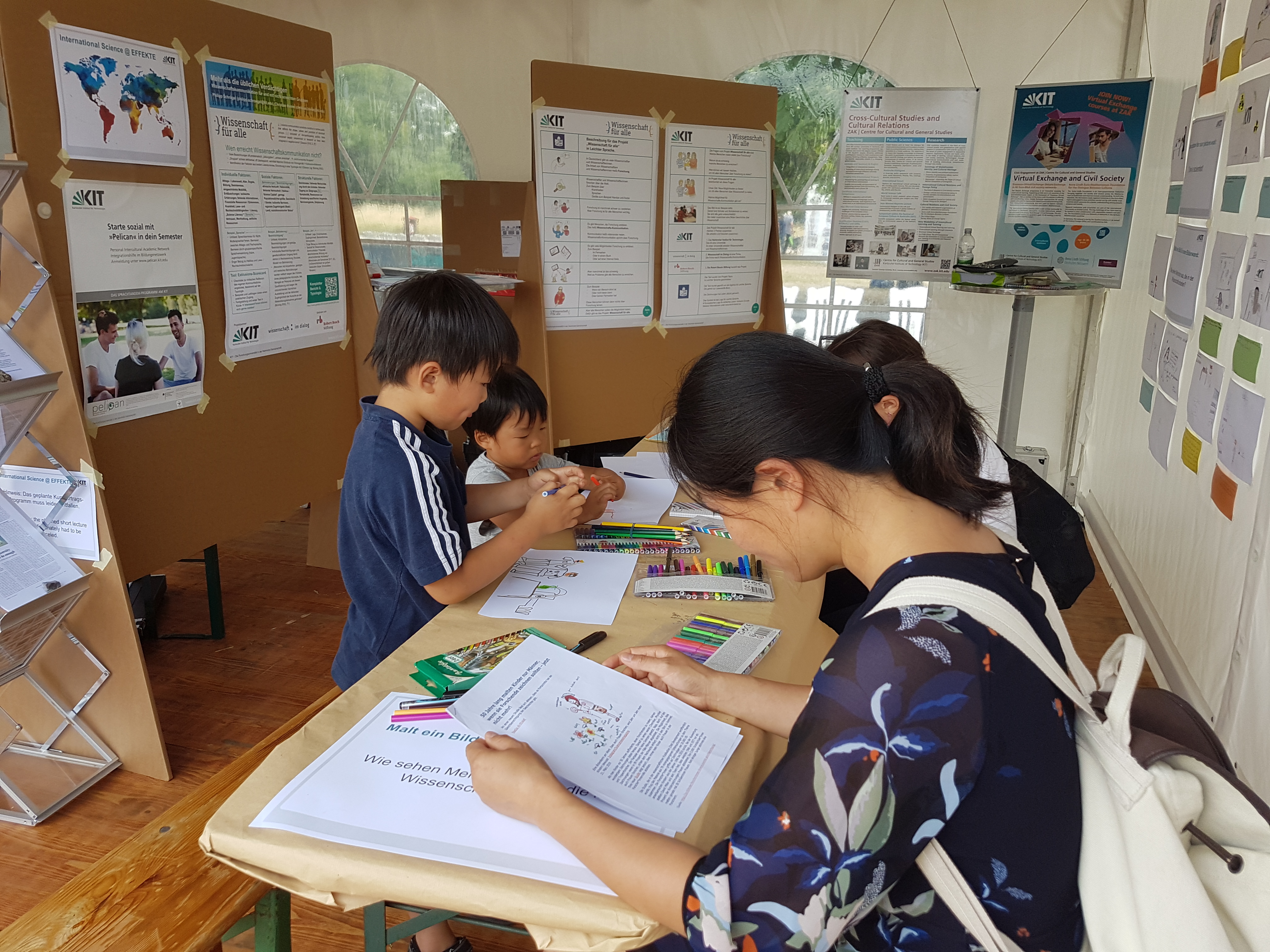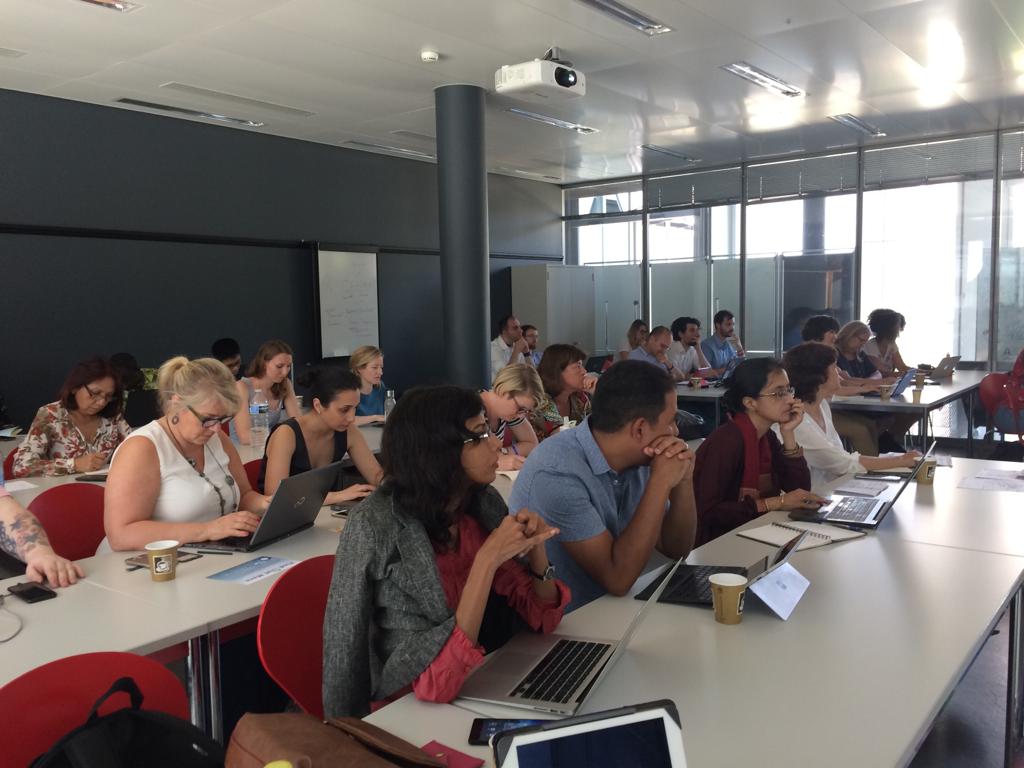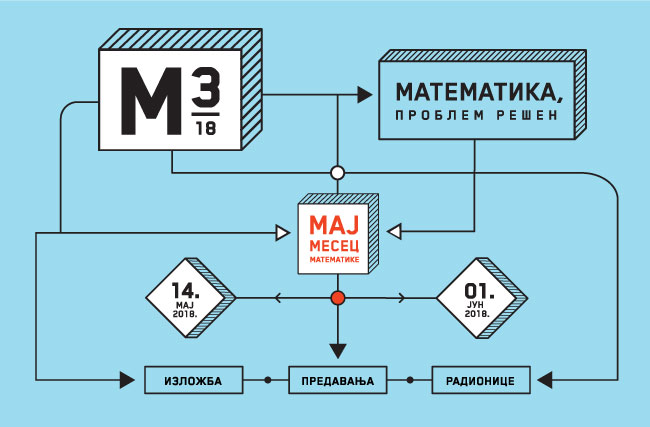Written by Andrea Troncoso
Makers are famous for their pragmatism, a traite that is important in every project. NUCLEUS invited Pieter van Boheemen, from Rathenau Instituut and Jan-Maarten Luursema, from Radboud University, both based in The Netherland’s, to run a Mobile Nucleus as part of the Rhine-Waal University Mini Maker Fair. The Workshop aimed to spread the spirit of creativity, openness and innovation that the maker movement knows so well.
Two workshops were held with 52 participants, whose ages ranged from 11 to 60 years of age. . A truly intergenerational experience!
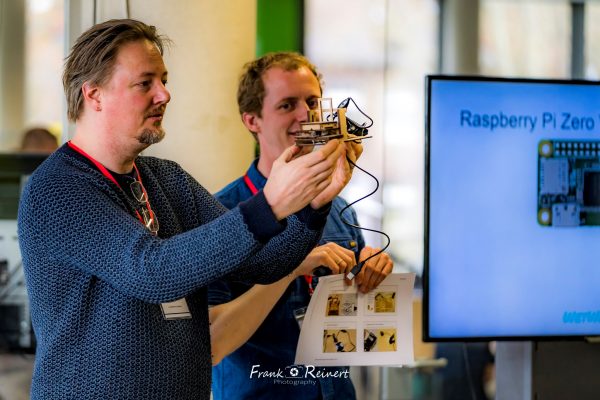
During each 2 hour workshop participants transformed ordinary webcams into optical microscopes. This enabled them to explore the world of microbes. The very special feature of this workshop is not only that everyone participates in building a new device, namely a microscope, but they also learn how to disassemble a webcam, an activity that that we are not usually exposed to: destroy to build. In this case, a lens was extracted from the webcam and inserted in a new structure, that each one built following the instructions.
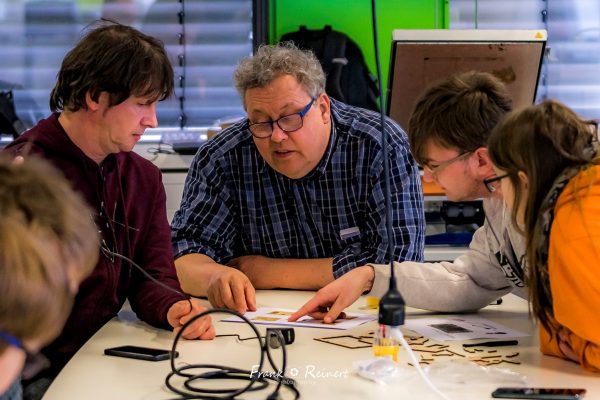
Once the microscope was set up, participants explored some prepared samples or got daring enough to look at objects or specimens, such as their own saliva. Using their phones or laptops, they could clearly see and adjust the image of the sample.
The principles underlying the workshop are strongly related to innovation and to the spirit of research collaboration and openness. The workshop and the items used in it are available via the internet for anyone to replicate the activity. This open approach fosters self-creation and invention of easy and accessible tools to view objects that are impossible to see in any detail with the naked eye.
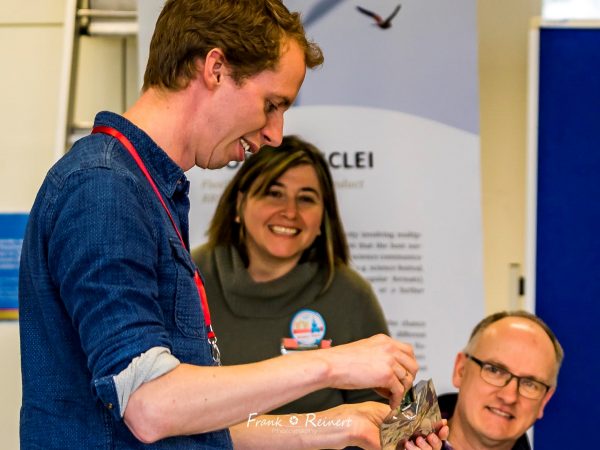
The introduction to the workshops, given by Andrea Troncoso, coordinator of the Mobile Nucleus events as part of the EUSEA team, explained the context of how such an experience can bring the public closer to science. That through such hands-on activities our minds are able to make new connections and meaning-The NUCLEUS project explores new ways of understanding and performing science, bringing new approaches , or “New clues” to the world of research. .
Involving a non-scientific public from different backgrounds and ages, in such experiences enables us to spread the word about these new paradigms, and helps create meaningful connections between their lives and, developments in science and technology.
Activities like the Maker Fare and the DIY-science movement help to expand the horizons of many people who may otherwise have little opportunity to engage directly with, understand, and contribute to science and technology.
